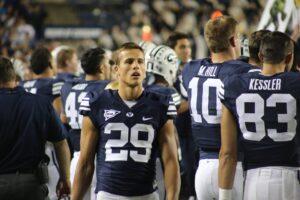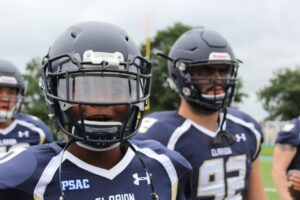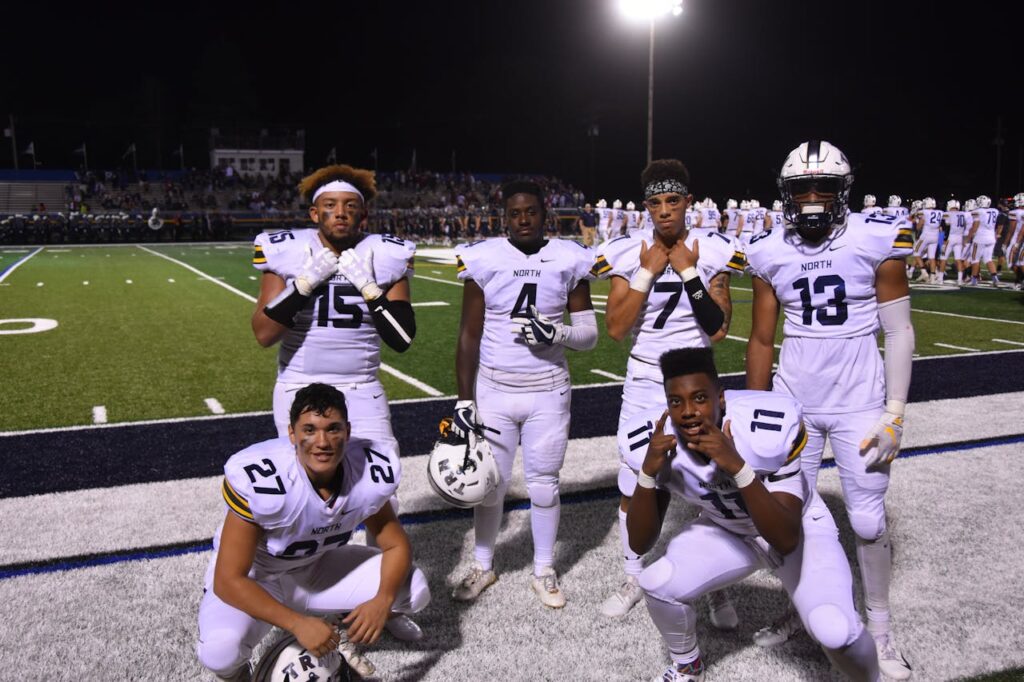Why NFL :Anger From Top1 Players’ Insurance Now

AFTER AARON RODGERS tore his Achilles after only four snaps during the previous season, NFL agents and club staff immediately consulted their laptops to verify a suspicion they had Rodgers’ contract did not contain an insurance amendment.
After making a trade for Rodgers, the Jets renegotiated his deal and chose not to purchase insurance in order to cover a portion of the $37 million in guaranteed money that the quarterback would be owing in 2023.
Although the Jets had no connection to the broker who had sold the Packers the policy, Green Bay had one on Rodgers.
Rodgers’ left Achilles tendon snapped, meaning the $37 million he paid for a non-playing player would never be recouped.
Former manager Richard Buffum stated, “The Aaron Rodgers situation is a tragedy that should be understood of football administration for the 49ers and the current Excel Sports Management agency’s director of wage cap and contracts.
“It’s an indefensible decision to trade for a 40-year-old quarterback when you already have the policy in place,” a former NFL club official stated.
“Penny-wise, dollar foolish.”
The Jets refused to add insurance to Aaron Rodgers’ contract to safeguard the franchise in the event that he missed games due to illness or injury, as Sportico first revealed in October of last year.
The audit states that the Jets lost out on up to $22 million in insurance proceeds because they chose not to buy any of several plans that ranged in price from $1 million to $4 million.
The Jets’ greatest insurance-related loss was left unmentioned, which is precisely why Buffum calls the accompanying respite from the salary cap is tragic.
Proceeds from insurance are classified by the CBA as a “refund from the player,” making the sum eligible to be applied to the club’s cap credit for the upcoming season.

The simplest explanation is that a club can recover space for the next season if a player who consumes a big amount of the wage cap misses a sizable amount of time due to injury or illness.
Furthermore, insurance premium payments are not deducted from the maximum compensation.
“That’s the main weakness,” the ex-club executive stated.
“Cash can be used successfully to start from scratch when creating cap space.
That is one of the few options to purchase cap space in a closed system.”
It’s a perk that’s rarely shared with outsiders, such as the media, and is only whispered about in front offices that make use of it.
Since the CBA rule went into effect in 2006, the clubs that have abused this cap hack have mostly gone unnoticed.
Speaking about insurance is sort of taboo, according to an official from a club that has been a regular customer for a long time.
“If I’m doing something that I think is benefiting my club, why would I want to broadcast it within an article?” stated a former captain.
(He refused to discuss the insurance policies of the clubs he had worked for.)
Additionally, the insurance industry is just as tightly controlled; teams can purchase coverage from the two primary brokers.
They have no reason to advertise their product when there are only so many customers.
However, the “tragedy” of the Jets, along with higher guaranteed salaries and prominent quarterback injuries, have brought attention to this unsanctioned strategy.
The number of NFL contracts with insurance policies has increased in the last five years, according to a cap executive who evaluates every contract.
Two sources in the insurance business also reported that teams that had never purchased insurance before are now clients.
The cost of premiums has climbed significantly because to rising demand and rising claim payouts.
Injuries claimed the careers of seven starting quarterbacks the previous year, while Jordan Love and Tua Tagovailoa have already suffered injuries this year.
As opposed to the quarterbacks of the Jets, Packers, and Dolphins all have insurance plans; they signed new deals this offseason.
One of the league’s best-kept secrets, according to the club executive of a veteran insurance buyer, is figuring out a method to roll over cap money to a future year in order to “create cap space out of thin air,” since injuries are an inevitable reality.
The former NFL executive declared, “Most people know nothing about this rabbit hole.”
Currently, ABOUT HALF of NFL clubs carry insurance on one or more player contracts; many simply insure their most expensive contract, the player.
Approximately 75% of teams have reportedly purchased insurance coverage in the past, according to a source in the insurance sector.
“Usually it’s like [the front office’s] lifesaver to attempt to sell it to ownership for the clubs that get absolutely steamrolled into overpaying a player [that buy insurance], according to an ex-cap executive.
“It’s like, ‘We’ll get your money back if he gets hurt.'”
It should come as no surprise to learn which position has been the most effective magnet for policies in the NFL, which is dominated by quarterbacks.
With the exception of Jared Goff of the Lions, thirteen of the top fourteen quarterback agreements in terms of total worth are insured for a portion of their contract value.
Cincinnati, a team known for its frugal practices and which, according to a source in the insurance sector, had never before purchased insurance, acquired one in 2023 as part of Joe Burrow’s contract extension.
The agreement comprised $146.5 million in guaranteed cash, with Deshaun Watson’s completely guaranteed contract ranking second.
When asked to clarify that Burrow was their original policy, the Bengals did not answer.
This month, Cowboys quarterback Dak Prescott inked the largest quarterback contract to date, which includes an insurance clause, much like his prior deal did.
Prescott contributes $44.6 million (17.2%) of Dallas’ salary cap in 2024; by 2025, that amount has increased to $89.8 million (30.1%).
An insurance industry source questioned, “If you lose a player like that, and it’s for longer than a season, are you able to be competitive?”
“Because you now have 30% of your salary cap eaten up by one player.”
With a concussion, Tagovailoa left the game on Thursday in the third quarter.
covered by $167 million in injury guarantees as stipulated in his contract, even in the unlikely event that he is deemed unfit to play again.
Concussions are not covered by waivers or exclusions. Under Tagovailoa’s contract, the Dolphins are also covered for up to $49.3 million.
However, the playing contract and Miami’s insurance policy are two different things.
Two sources in the insurance industry, who are not directly aware of the Dolphins’ policy, stated that, based on their experience dealing with insurance carriers, they would anticipate that concussions would not be covered by Miami’s policy on Tagovailoa, even though it is unknown exactly what the $49.3 million covers.
If a player has two highly publicized concussions, carriers are unlikely to assume the risk of covering the team for concussions.
that resulted in him missing five games in 2022, and he stated he thought about retiring after the campaign.
According to a source in the insurance business, the Jets’ policy did not include any restrictions for Achilles injuries when Rodgers was injured.
As a result, the team would have received payments after meeting their deductible on a per-game basis.
In Miami, however, the Dolphins will not be entitled to the $49.3 million if concussions are not covered under the policy.
The Dolphins declined to respond through a team representative.
Speaking generally about the five clubs he worked for during his NFL career, former Jets general manager John Idzik told ESPN that ownership buy-in and consent are required in order to obtain an insurance premium.
“There’s a specific level of ownership
manner of doing business,” Idzik remarked. Some clubs will be more likely to insure since they grow accustomed to it and realize its advantages.
Some are not as suitable.”
The study of the salary cap staff at a club can impact its insurance philosophy, but ultimately the decision rests with the owner, who must be prepared to pay the premium out of pocket.
It is up to each owner to assess what Buffum refers to as “a lose small, win big proposition,” as the NFL does not mandate clubs to acquire these temporary total disability coverage on player contracts.
“It’s whether or not they’re believers in insurance, whether they want to spend the money on it or not,” a source in the business stated.
Sportico stated The Jets aren’t manner of doing business,” Idzik remarked. Some clubs will be more likely to insure since they grow accustomed to it and realize its advantages.
Some are not as suitable.”
Why NFL

The study of the salary cap staff at a club can impact its insurance philosophy, but ultimately the decision rests with the owner, who must be prepared to pay the premium out of pocket.
It is up to each owner to assess what Buffum refers to as “a lose small, win big proposition,” as the NFL does not mandate clubs to acquire these temporary total disability coverage on player contracts.
“It’s whether or not they’re believers in insurance, whether they want to spend the money on it or not,” a source in the business stated.
Sportico stated The Jets aren’t manner of doing business,” Idzik remarked.
Some clubs will be more likely to insure since they grow accustomed to it and realize its advantages. Some are not as suitable.”
The study of the salary cap staff at a club can impact its insurance philosophy, but ultimately the decision rests with the owner, who must be prepared to pay the premium out of pocket.
It is up to each owner to assess what Buffam refers to as “a lose small, win big proposition,” as the NFL does not mandate clubs to acquire these temporary total disability coverage on player contracts.
“It’s whether or not they’re believers in insurance, whether they want to spend the money on it or not,” a source in the business stated.
Sportico stated The Jets aren’t implemented a policy in ten years or less.
Idzik refused to answer if they had bought insurance during his two seasons as general manager of the Jets (2013–14). “It was.
READ MORE:
1. Health and Fitness Tips for You
2. Upcoming New Movies
3. Get New Jobs Directly From Companies FREE Visa
4.Latest News of Cryptocurrency and Bitcoin
5. Real Estate Business for you
6. Latest News
7. Best Insurance Policy for Everyone
READ MORE:
- 1. Strategic Management Process: Top5 Jobs In Dubai FREE VISA Apply Now
- 2. Vancouver Time fighting for $12,000 in travel insurance Nightmare FREE
- 3. DIABETIC DIET : A PROFESSIONAL’S GUIDE TO A WARM AND WELL-BEING
- 4. NICOLAS CAGE STATES : HE HAS 3 OR 4 MORE MOVIES LEFT NOW
- 5. EMPRESS CRACKS: FOR THE FIRST TIME SINCE APRIL
- 6. DESPITE MEANING: DESPITE HIGH RATES, MORE US HOME BUYERS ARE WILLING TO BUY
- 7. A 44-YEAR-OLD BOSTON WOMAN WAS KILLED BY A SHARK ATTACK IN THE BAHAMAS WHILE ON VACATION







